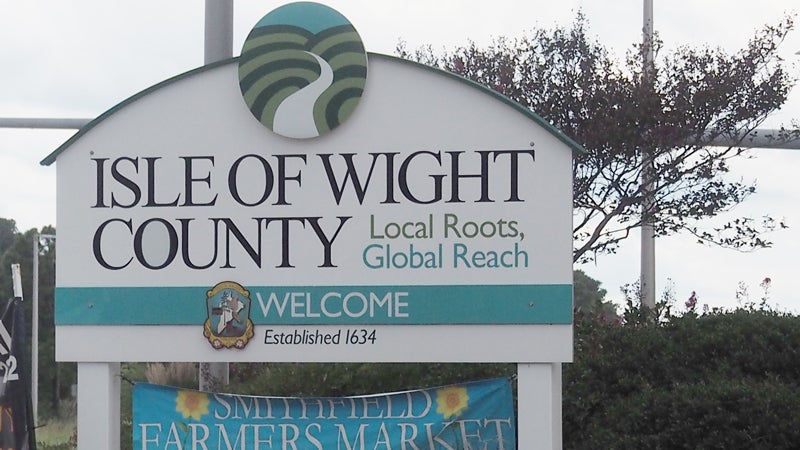Landowners queried by solar investors
Published 12:12 pm Wednesday, June 28, 2017
By Diana McFarland
Managing editor
Some Surry landowners are receiving letters from solar companies looking to buy or lease land for solar farms.
Walter Pittman, who owns acreage at White Marsh, recently received a letter from an attorney representing sPower, or Sustainable Power Group, which is located in Salt Lake City.
His grandson also got a letter, Pittman said.
The May 25 letter stated that the company has been in contact with many landowners in Surry, and is currently in a purchasing arrangement on more than a dozen parcels.
The letter indicated that Pittman’s land is suitable for a solar farm, given that it is reasonably close to a power substation off Mill Swamp Road in Isle of Wight County.
Pittman said he wants no part of it. {mprestriction ids=”1,2,3,4,5,6″}
His friends at Main Street Restaurant the morning he discussed the inquiry were equally skeptical. They expressed concerns about how solar panels could permanently alter the soil, making it unusable after the solar panels were removed. There’s also the question of who is responsible for removing the panels when their lifespan is complete, they said.
Pittman also objected to the farm being surrounded by tall fences.
Not only does it destroy the farm, he said, it also takes away that look of nature.
According to District Conservationist Michael Faulk with the Natural Resources Conservation Service, the only way the soil may be affected by solar panels is that it might prevent nutrients from being available for crops planted after the panels are removed. However, a nutrient management specialist could test the soil and tell the producer what nutrients would be necessary for a particular crop and which can be applied as fertilizer.
It would not permanently sterilize the soil, he said.
Currently, Surry has a third application for another solar farm, this one to be located near Cabin Point.
Pittman is not the only Surry landowner receiving letters. Farmer Steve Berryman said he’s received letters from various solar companies, but like Pittman, wasn’t biting.
Efforts to contact a representative for sPower was unsuccessful.
Surry County Administrator Tyrone Franklin said the newest model is to put solar farms on land to be timbered. He pointed to the recent uproar over a large solar farm going up in Accomack County on land previously used to grow crops.
Franklin said the companies putting up farms in Surry will have large buffers to shield the panels from sight.
“So you’ll never know they’re there,” he said.
Franklin objected more to the lack of revenue the county would receive from solar farms, as there is legislation that provides tax incentives for those developing the farms.
According to the Code of Virginia, some certified pollution control equipment, such as solar, is exempt from state and local taxation.
On the flip side, Surry receives $10 million a year from the Dominion nuclear power plant, Franklin said.
Last month, Dominion Energy announced it plans to increase its use of solar power over coal to reduce its overall carbon footprint.
Dominion spokesperson Bonita Harris said ideal sites for solar farms are large, flat and located near the power grid.
Isle of Wight and Surry counties fit that profile with its large farms and proximity to more transmission and distribution lines than the average county in Virginia, due to the Surry nuclear power plant.
Pittman and his friends mentioned the large number of solar farms going up in North Carolina with some apprehension.
Currituck County residents are also concerned, leading to a ban on new solar farms by the Currituck Board of Supervisors, according to a story in the Virginian-Pilot.
A few other North Carolina counties have also declared temporary moratoriums.
So far, there is one solar farm in Isle of Wight County, and the landowner said the deal was attractive as the income was more reliable than growing crops.
As a farmer, Pittman could understand the motivation behind renting the land — it would provide a guaranteed income despite the weather.
However, he still didn’t like the idea of turning over his fields to large, unsightly panels.
“If I wanted all that I would have moved to the city,” he said. {/mprestriction}





